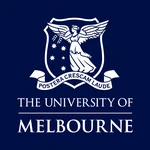PhD (Doctoral) Opportunity: Spatially-Resolved Radiometric Dating of Extraterrestrial Materials
The University of Melbourne, School of Geography, Earth and Atmsopheric Sciences
The School of Geography, Earth and Atmospheric Sciences (SGEAS) is a modern multidisciplinary community. We benefit society through outstanding education, research, and engagement in geography, geoscience, atmospheric science, and allied multidisciplinary areas, including climate change, environmental studies and archaeological science.
We love to share our knowledge with the world, and we are dedicated to achieving a better future for our students, societies and the environment.
Homepage: https://sgeas.unimelb.edu.au/
Planetary and Solar System Sciences (PS)
About the Opportunity
The University of Melbourne, in collaboration with the University of Tokyo (UTokyo) and the Japan Aerospace Exploration Agency (JAXA), is offering four PhD positions as part of an international Collaborative PhD Program. This initiative aims to advance research in planetary materials, space mission return sample characterisation, and high-speed aerodynamics, contributing to planetary and space science and to future space research and exploration.
Each PhD project will be co-supervised by experts from UoM, UTokyo, and JAXA, with access to world-class facilities at the Institute of Space and Astronautical Science (ISAS). The program includes a three-week technical research visit to ISAS/JAXA’s facility for the entire PhD cohort, hosted by JAXA’s Astromaterials Science Research Group, as well as bilateral exchange opportunities between UoM, UTokyo and JAXA. You can read more about the space research partnership HERE, and more about the other projects HERE.
Primary Supervisor
Project Description
Radiometric dating is crucial for determining the formation and secondary process histories of planetary bodies, yet sample mass constraints pose significant challenges. This project will develop micro-scale in situ techniques for Rb-Sr and U-Pb, and micro Ar-Ar geochronology, enabling precise dating of extraterrestrial samples. The research will incorporate micro-CT phase identification and explore the impact of secondary mineralisation on dating accuracy.
Available Scholarships
Applicants are automatically considered for a range of scholarships, however some other scholarships require a standalone application. More information is available here
Successful scholarship applicants will receive
- Full fee offset for four years for students undertaking a doctoral degree.
- Living allowance of $38,500 per year pro rata (2025 full-time study rate) for up to 3.5 years for students undertaking a doctoral degree. The living allowance may be indexed annually and includes limited paid sick, maternity and parenting leave.
- Relocation grant of $2000 for students moving from States or Territories other than Victoria or $3000 for students moving from outside Australia.
- Overseas Student Health Cover (OSHC) Single Membership for international students who require a student visa to study in Australia
Application Process
- Cover Letter with an expanded research proposal based on the Project Description above (250-500 words)
- A CV/resume that includes declaration of nationality/citizenship(s)
- Academic transcripts
- Apply HERE

